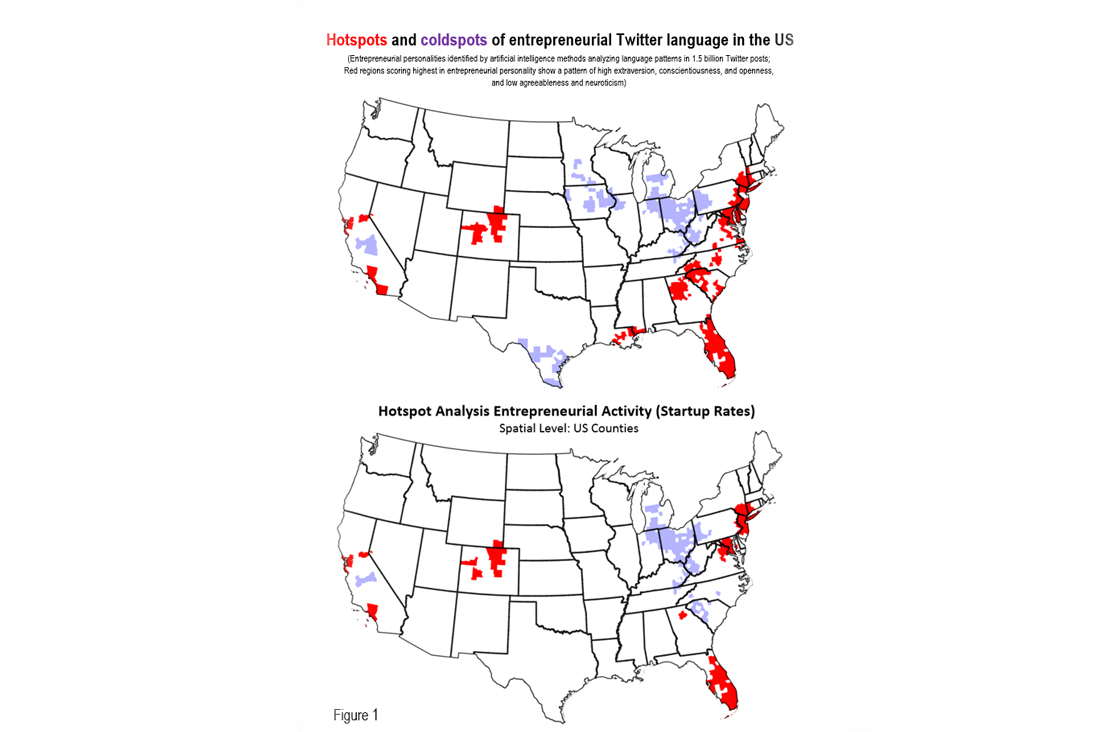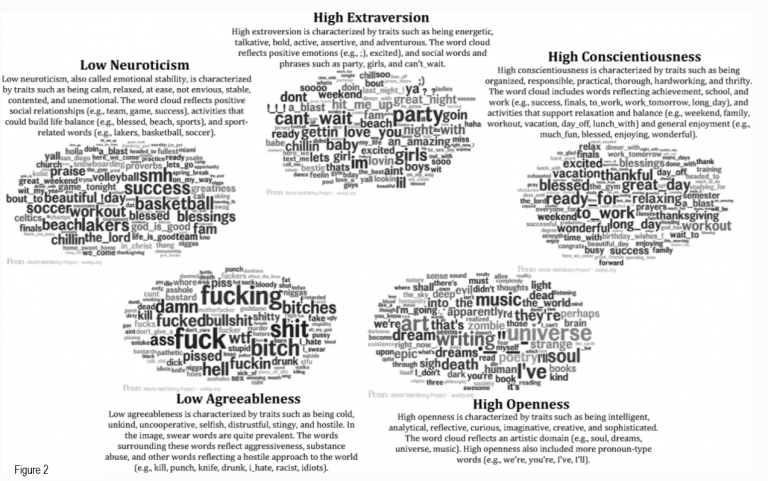
Professor Martin Obschonka, 7 September, 2020
Can Twitter inform us where entrepreneurship flourishes and the connection between entrepreneurship hot spots and region economic viability?
In a new study from the Australian Centre for Entrepreneurship Research collaborating with researchers from the London School of Economics and Political Science, the University of Pennsylvania and the University of Mannheim, AI models applied to language patterns in 1.5 Billion Twitter posts uncovered regional hotspots and cold spots of entrepreneurial language and activity across the US. Large hotspots of entrepreneurial language on social media are the Belt on the East Coast, spanning from Massachusetts all the way to Florida, Colorado around Denver / Boulder, San Francisco / Bay Area, and South California, Gulf Coast regions of Louisiana and Mississippi. Large cold spots of entrepreneurial language on social media are the Rust Belt, Southern Texas and Central California.
Twitter as a reliable indicator
The study is the first to show that social media, in particular how language is used in Twitter as a reliable marker of economic vitality in a region. When comparing the entrepreneurial social media language map of the US with the actual economic map of the US showing the local startups rates the study found remarkable overlap between the language map and the economic map (Figure 1).

Entrepreneurial language and personality patterns
What is an entrepreneurial language pattern? The study focused on an entrepreneurial constellation of words reflective of the personality of Twitter users, using machine learning methods. These psychometric AI methods are able to translate language patterns from millions of people into regional psychological traits (e.g., extraversion, conscientiousness, openness, agreeableness and neuroticism). In other words, the study used a personality approach to organize social media language and to estimate the level of entrepreneurial traits of local populations. This made it possible to identify where the local hotspots of entrepreneurial people really are.
AI enabled analysis
Figure 2 shows AI-generated word clouds with typical words that are particularly predictive of an entrepreneurial constellation of the five traits examined in this study. So if in a region many people use such words relatively often in social media post – this region was identified as particularly entrepreneurial. If one only looks at the single most typical word for each entrepreneurial trait, and then combines them – a sentence like “Work success is a fXXXing party in the universe” would be one example where the AI model would rank such language and expressions as particularly entrepreneurial. It reflects the industriousness of entrepreneurial people, but also their rule-breaking (thus the swearing), excitement and curiosity.

These results can inform research and practice interested in an AI- and big data-driven approach to entrepreneurial hotspots and ecosystems, where the focus is not only on “hard” infrastructure factors conducive to a startup culture, but also on people, their mindsets and the local psychological culture.
